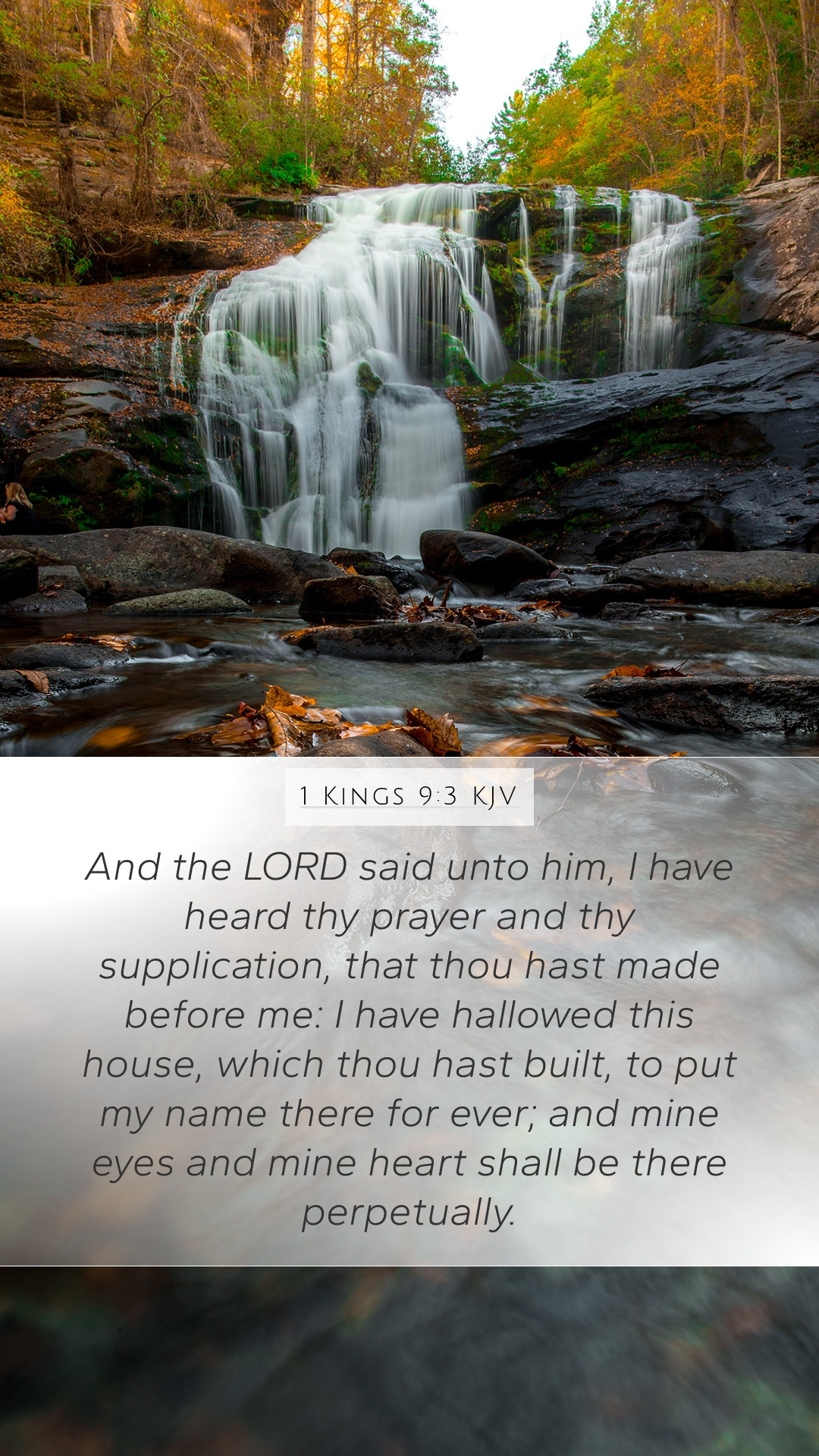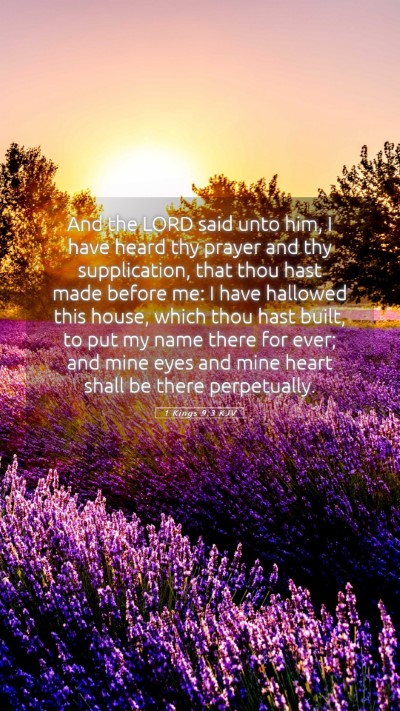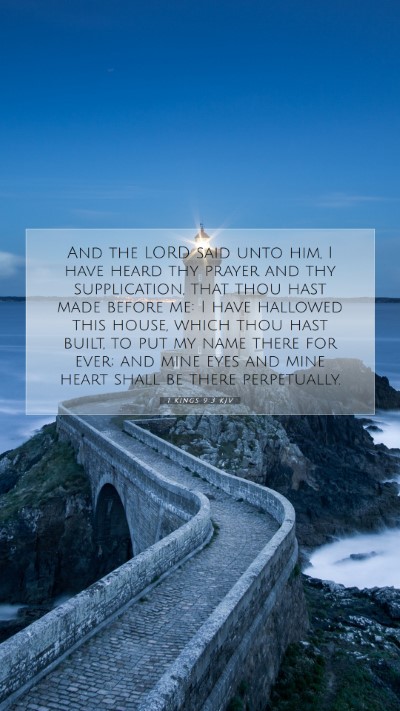Understanding 1 Kings 9:3
In 1 Kings 9:3, the Lord responds to Solomon's prayers and affirms the covenant made with David, establishing the significance of the temple dedicated in Jerusalem. This verse serves as a pivotal moment in the history of Israel, reflecting God's presence and His promises. Below, we explore the meanings, interpretations, and explanations drawn from esteemed public domain commentaries.
Verse Text
1 Kings 9:3: "And the Lord said unto him, I have heard thy prayer and thy supplication, that thou hast made before me: I have hallowed this house, which thou hast built, to put my name there forever; and mine eyes and mine heart shall be there perpetually."
Bible Verse Meaning
This verse is rich in implications for understanding God's relationship with His people and the significance of the temple. The following insights are gathered from various commentaries:
-
Divine Acknowledgment:
Matthew Henry emphasizes that God hears the prayers of His people. Solomon's heartfelt plea was acknowledged by God, illustrating the personal relationship that exists between the Creator and those who seek Him. The act of God hearing implies not just acknowledgment but engagement with human concerns.
-
Sanctification of the Temple:
According to Adam Clarke, God's declaration of having "hallowed" the temple signifies its set-apart status for divine purposes. It is not merely a place of worship but a sacred space where God's presence would reside among His people. This emphasizes the importance of sacred spaces in the worship of God.
-
Permanence of God's Name:
Albert Barnes highlights that the phrase "to put my name there forever" reflects the eternal covenant between God and Israel. It emphasizes the stability of God's promises and the fact that, despite future challenges, God's presence would remain anchored in the temple as long as the people remained faithful.
-
God's Eyes and Heart:
The imagery of God's "eyes and heart" being perpetually in the temple encapsulates His continuous watchfulness and affection for His people. It invites believers to understand that God's unwavering presence is tied to their worship and conduct within the temple.
-
Conditions of God's Promises:
Commentators point out that while God promises His everlasting presence, there are implicit conditions regarding the faithfulness of the people. The context of Solomon's reign underscores the necessity of obedience to maintain God's favor.
-
Historical Context:
Understanding the historical background is crucial for interpreting this passage. Solomon's temple represented a culmination of Israel’s journey through the wilderness and the establishment of a national identity. The temple signifies the transition of God dwelling in a mobile tabernacle to a permanent site amongst His people.
Application for Today
The verse prompts modern readers to reflect on the significance of sacred spaces and the continuous presence of God in their lives. Here are a few thoughts on applying this scripture:
- Dedication of Places for Worship: Just as the temple was a hallowed space, believers today are encouraged to create and respect places where they encounter God, whether in formal churches or personal prayer spaces.
- Living According to God's Presence: Understanding that God’s eyes are on us encourages a lifestyle of integrity and faithfulness, resonating with the timeless call to live in accordance with His will.
- Perseverance in Prayer: This verse reinforces the importance of prayer as a means of communication with God, reminding believers that their supplications are heard and honored.
- Commitment to Covenant: It invites engagement with the commitments of faith, emphasizing that God’s promises often come with expectations of our devotion and obedience.
Conclusion
In conclusion, 1 Kings 9:3 encapsulates the profound understanding of God's promises and presence through the establishment of the temple. This scripture not only serves as a historical anchor but also as an enduring reminder of the covenant relationship between God and His people. By examining this verse through the lens of respected commentaries, believers can gain deeper Bible verse meanings, interpretations, and practical applications relevant to their spiritual journeys.
Related Cross References
- 2 Chronicles 7:15-16 - God's eyes and ears are attentive to the temple and the prayers offered there.
- 1 Kings 8:27 - Solomon questions if God can truly dwell among men.
- Psalm 132:13-14 - God has chosen Zion as His dwelling place forever.


